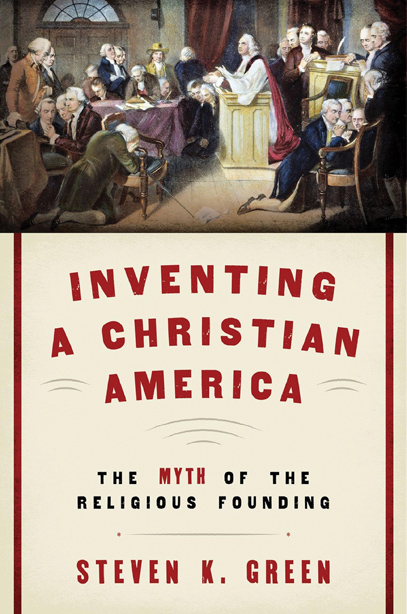 Inventing a Christian America
Inventing a Christian America
By Steven K. Green (Oxford, 2015)
Teaching the history of religion I frequently have to wave my students off from “always” and “never” statements. “Jews and Muslims have never gotten along.” Actually, in medieval Spain they lived and worked together quite well. “Christianity has always been bad for women.” For many women, Christianity offered more positive roles than the Roman state religion they abandoned. In Inventing a Christian America: The Myth of the Religious Founding, Steven Green takes on a particularly potent “always”—the idea that the United States has always been a Christian nation.
Accessible to the lay reader, Green’s book examines the development of American Christian thought from the 1600s to the early 1800s, giving valuable context to some of the era’s popular religious motifs. John Winthrop’s use of the biblical “city upon a hill” to describe the Massachusetts Bay Colony, for example, was a reminder to fellow Puritans to be good examples of Puritanism for their co-religionists back home. The idea that as a “city upon a hill” America has a moral imperative to be an example to the world belongs to John Kennedy, not John Winthrop.
Green argues that most of our mistaken ideas about the role of Christianity in the creation of the United States date to the early 1800s. These misunderstandings were not deliberate, but rather, in the minds of their authors, based in evidence. Without God, how else could one explain the Continental Army’s defeat of the better-equipped British, or the fact that American republicanism flourished while French republicanism failed?
Christianity in early America was varied and evolving. George Washington could both attend church and be a Freemason and no one batted an eye. If we choose to continue the 19th-century tradition of making the founders’ Christianity static and uniform, we do so at our peril.
This review appeared in the September 2015 issue of U.S. Catholic (Vol. 80, No. 9, page 43).













Add comment